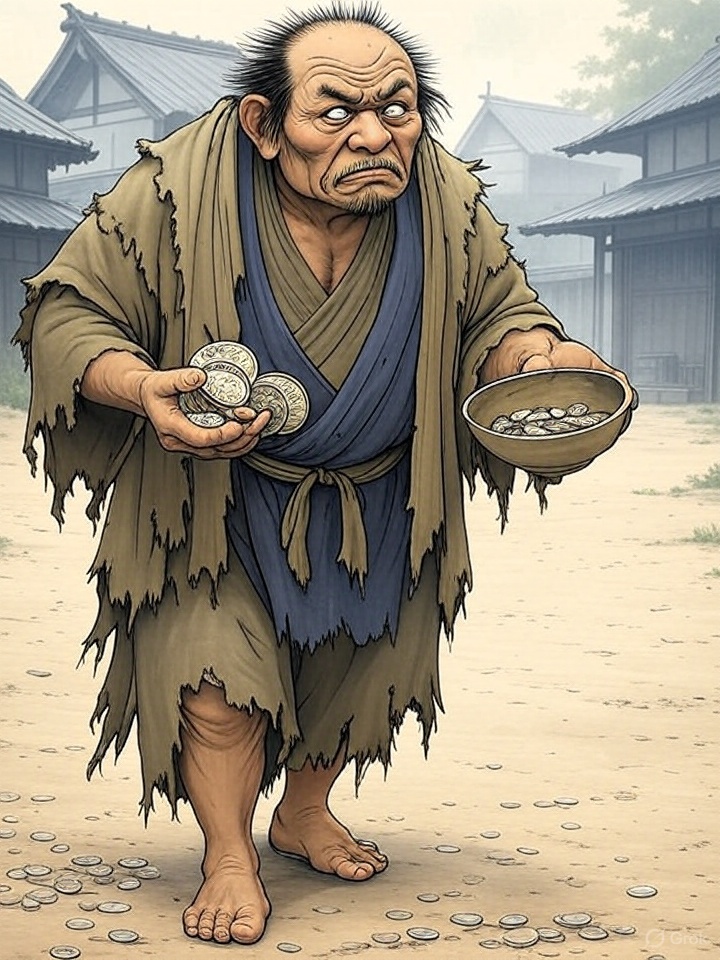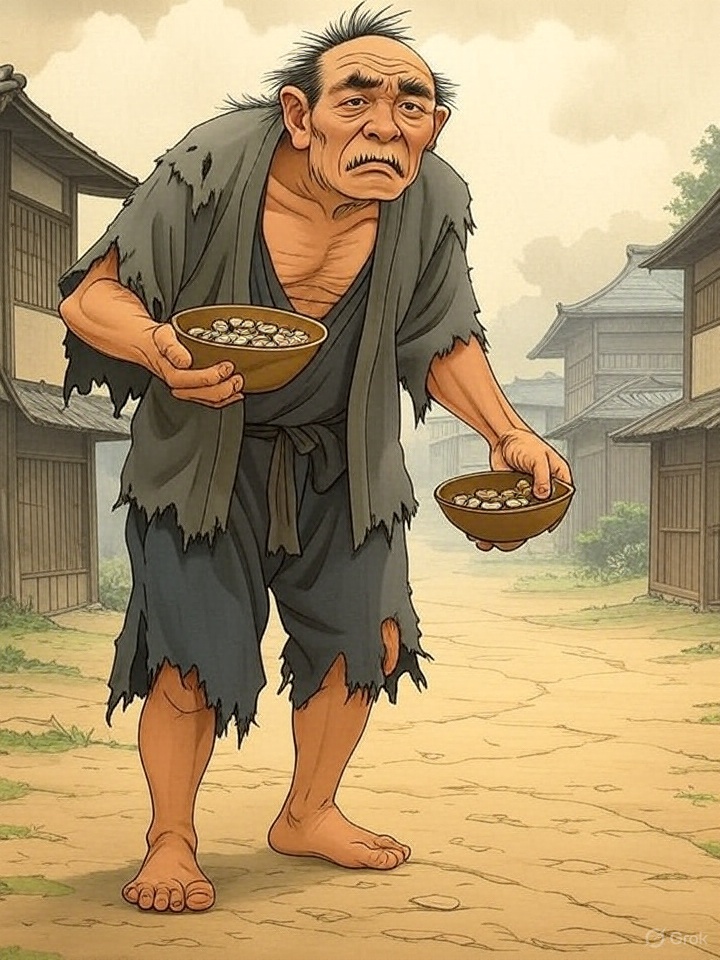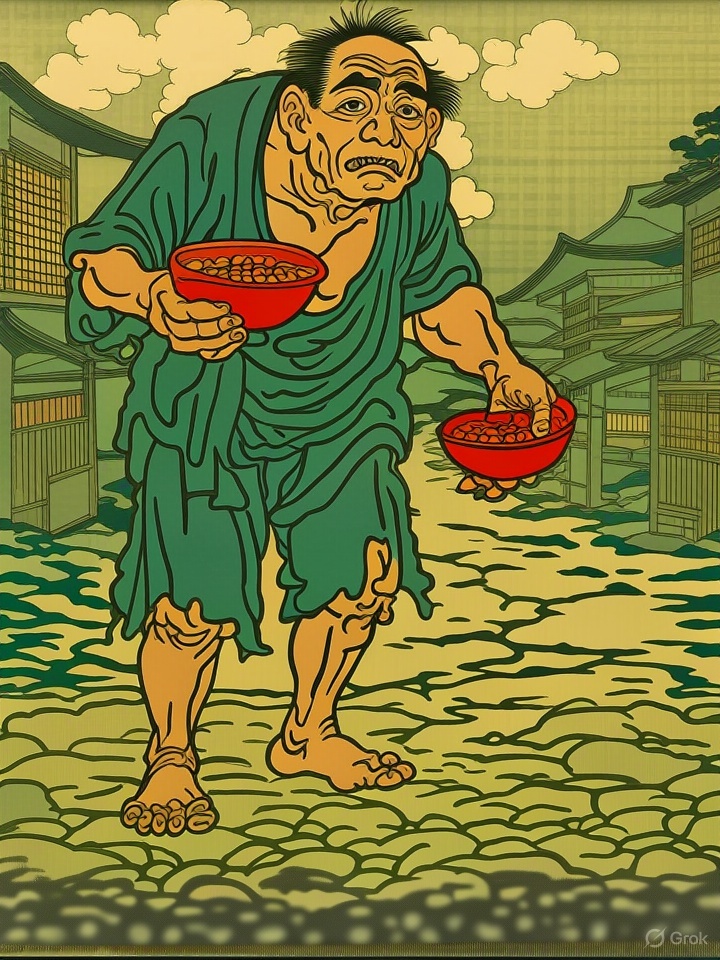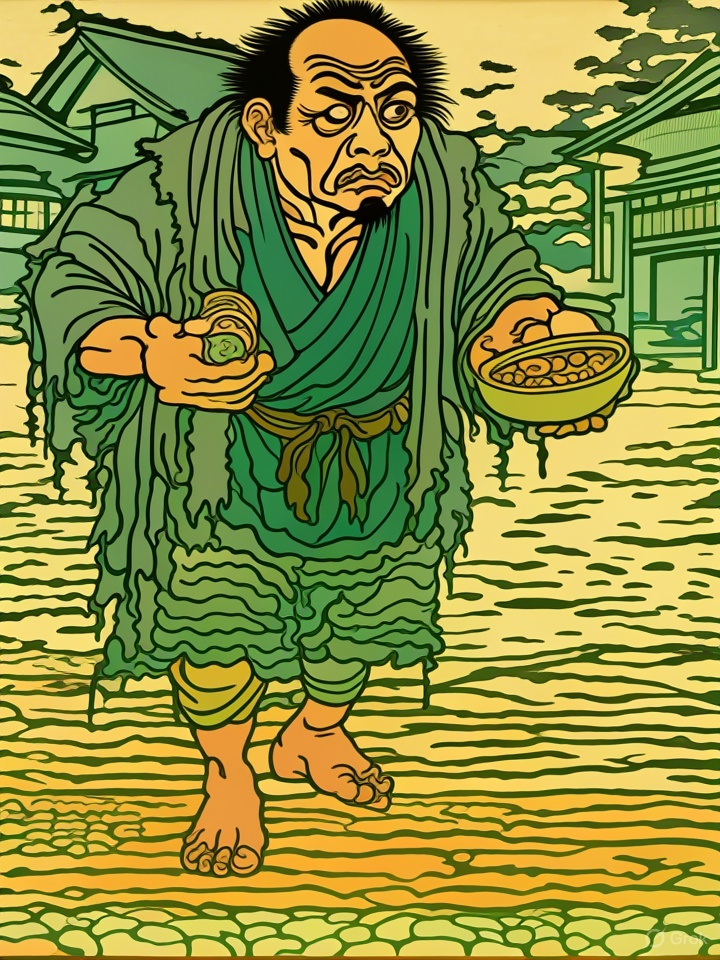Name Meaning
Overview
Binbōgami (貧乏神) literally means “poverty deity” or “spirit of misfortune.” Despite being called a god, it is often feared as a bringer of bad luck and financial ruin.
- Binbō (貧乏) = poverty
- Gami (神) = god/spirit (derogatory here)
Origin
- Rooted in Edo period beliefs and folk religion across Japan.
- Associated with uncleanliness, misfortune, and economic hardship.
- Sometimes enshrined in minor household rituals to drive it away.
Appearance
- Depicted as an old man in ragged clothing, often with a dirty face and carrying a broken fan or worn bag.
- May be invisible or appear disguised as a beggar or sickly traveler.
- Sometimes seen with flies or crows, symbols of decay and bad luck.
Behavior & Myths
- Invades homes that are dirty, neglected, or ungrateful.
- Brings continuous bad luck, lost opportunities, and poor health.
- Can be driven away through rituals, generosity, and regular cleaning.
Symbolism
- Represents the consequences of laziness, greed, and poor spiritual hygiene.
- A cautionary symbol used to encourage cleanliness, gratitude, and giving.
- Sometimes used humorously in pop culture as a jinx or bad omen.



